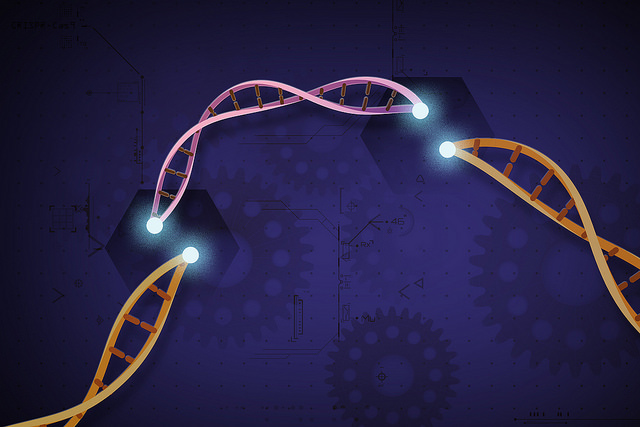Genes, synecdoche and the possibility of editing ourselves
By Kurt Cobb,
Resilience
| 05. 20. 2018
Margaret Atwood’s 2003 novel Oryx and Crake depicts the evolution and aftermath of a bioengineered global catastrophe. Whether Atwood at the time was privy to insider knowledge that genetic alteration would become easy to do and ubiquitous or whether she just thought it would make a good premise for a novel, I do not know.
What we have now, however, is a world moving ever forward toward what is being called the democratization of genetic engineering or biohacking for short. Anyone with a credit card and a mailing address can now order their own genetic engineering kit. Meanwhile, in major research laboratories around the world visits from awed reporters are bringing the possibility of fabulous advances in medicine to the attention of the public.
Some 6,000 diseases are thought to be linked to our genetic structure. Could these diseases not only be prevented in newly forming humans in utero, but also cured on the fly in fully fledged humans through means that alter their DNA? The preliminary answer is possibly.
Of course, there is concern that gene manipulation...
Related Articles
By David Jensen, California Stem Cell Report | 02.10.2026
Touchy issues involving accusations that California’s $12 billion gene and stem cell research agency is pushing aside “good science” in favor of new priorities and preferences will be aired again in late March at a public meeting in Sacramento.
The...
By Alex Polyakov, The Conversation | 02.09.2026
Prospective parents are being marketed genetic tests that claim to predict which IVF embryo will grow into the tallest, smartest or healthiest child.
But these tests cannot deliver what they promise. The benefits are likely minimal, while the risks to...
By Mike McIntire, The New York Times | 01.24.2026
Genetic researchers were seeking children for an ambitious, federally funded project to track brain development — a study that they told families could yield invaluable discoveries about DNA’s impact on behavior and disease.
They also promised that the children’s sensitive...
By Arthur Lazarus, MedPage Today | 01.23.2026
A growing body of contemporary research and reporting exposes how old ideas can find new life when repurposed within modern systems of medicine, technology, and public policy. Over the last decade, several trends have converged:
- The rise of polygenic scoring...




